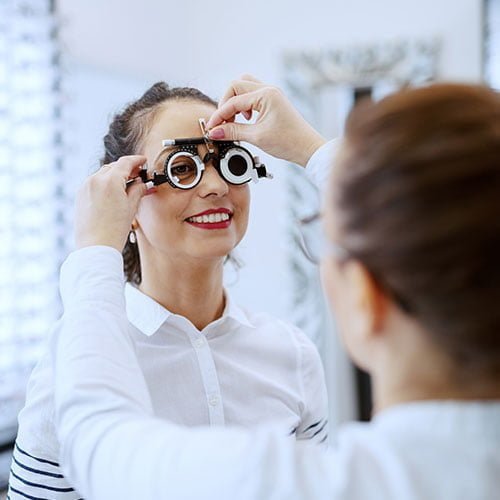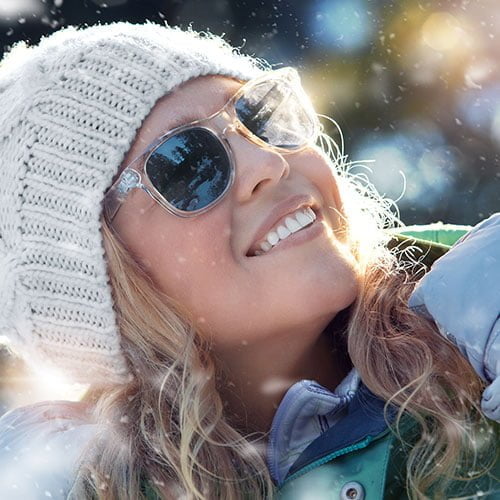Protect your eyes
While most Canadian adults now understand that extended sun exposure can lead to skin cancer, only 3% are aware that it can also damage their eyes. UVA and UVB, two types of invisible ultraviolet (UV) rays that reach the Earth’s surface, can damage an unprotected eye and lead to short and long-term vision impairment such as:
- Bloodshot or swollen eyes
- Hyper-sensitivity to light
- Photokeratitis
- Cataracts
- Age-related macular degeneration (AMD)
- Pterygium
- Cancer
Just because you can’t see them doesn’t mean they can’t harm your vision! Anyone spending time outdoors, whether it be in winter or summer, is at risk for visual health problems due to UV radiation. Your eyes need protection especially if you are sailing or skiing, even on cloudy days. This was a scary realisation for CNN correspondent Anderson Cooper who spent two hours covering an event on the open waters surrounding Portugal without sunglasses which resulted in a 36 hours loss of vision.

Choose the right sunglasses
Choosing the proper sunglasses to protect your eyes against harmful ultraviolet rays can feel overwhelming. A licensed optician can help you by selecting the correct protection level needed for your prescription or non-prescription sunglasses. Together you will be able to determine which is best for you:
- Wrap and Sport Sunglasses
- Polarization
- Mirror coatings
- Tints
Whatever options you prefer, sunglasses are a necessity to look great while protecting your most important sense. While most people feel the need to wear sunglasses to avoid squinting and causing wrinkles, you’ll understand that you need them to protect you against vision damage.

For complete protection
Risk Assessment
Talk to your licensed optician to ensure that you have adequate protection before undertaking any outdoor activity.They will determine what’s best according to specific factors, such as:
- Your prescription
- Your usage (specific sport or activity)
- Your age and eye color
- Your geographic location, including altitude
Also keep in mind that children under the age of 10 cannot effectively filter out UV rays like an adult eye and are at even greater risk of developing problems.
Planning a day
Outside?
Think about
protecting
your eyes
UV Protection
Even in winter
Did you know that your eyes can be just as affected by UV rays during winter, if not more? In fact winter snow reflects more UV rays into your eyes, especially in the afternoon. The consequences of this exposure can be just as serious as in the summer.
Inadequate UV protection could cause tingling sensations, redness, pain, tearing and hyper-sensitivity to light. In addition, winter conditions can cause other types of visual discomfort when playing sports such as frostbite, snow blindness and photokeratitis.
So protect your eyes and speak with a licensed optician before exposing yourself to the many dangers of winter.

